If you’ve ever been in a relationship, chances are you know what a toxic relationship is like. While not all relationships are toxic, most have some degree of toxicity and some are just downright abusive. If you are trapped in a relationship with a toxic partner, then you should know about the stages of a toxic relationship to know when to walk out.
Although initially we may not want to believe it, a toxic relationship will eventually reveal itself no matter how much we turn a blind eye to it. Every time we are abused, we tell ourselves that it is an isolated incident. That they will never do this again with us. That they love us. That they were just angry.
But regardless of how many excuses we make up inside our mind to protect our false beliefs, the signs of a toxic relationship keep creeping up on us. As the honeymoon stage slowly erodes away and makes way for the toxicity, we are taken aback by the sudden change in our partner.
We try to convince ourselves that everything is normal. These changes are natural. But the truth is we just trap ourselves even firmly in their toxic cycle.
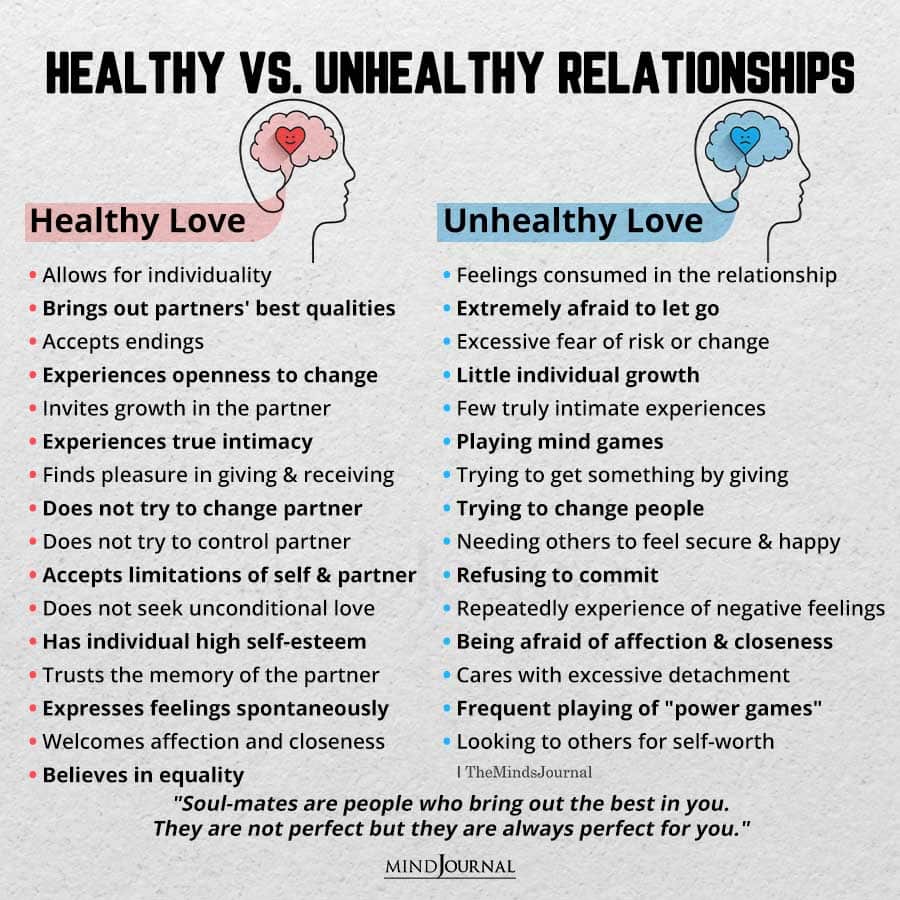
Understanding the stages of a toxic relationship can help us better identify how a seemingly loving and healthy relationship can become abusive so quickly and what we can do to get out of it and protect ourselves.
Related: 8 Toxic Behaviors To Never Tolerate In A Relationship
Is your relationship toxic?
Have you ever wondered if your relationship is healthy? Do you fight too often? Are you happy in your relationship? Or are you moving through the stages of a toxic relationship? Every relationship is unique and has different dynamics, but all relationships follow certain patterns that make them either healthy or toxic.
While even the happiest couples have their fair share of relationship issues, in toxic relationships the negativity outweighs the positive aspects of the relationship.
Toxic relationships are marked by repeated patterns of –
- Manipulation
- Control
- Selfishness
- Insecurities
- Desperation
- Jealousy
- Rejection
- Possessiveness
- Selfishness
- Dominance
However, when you are going through the stages of a toxic relationship, you become overly attached to your partner and become drawn to them despite how much abuse you have to tolerate. When in a toxic relationship, you and your partner may display certain behaviors, such as –
- One partner controls and has power over the other
- One partner plays the role of a submissive child while the other acts like a dominant parent
- The toxic partner uses manipulation and emotional oppression to get their way
- Suppresses the submissive partner’s individual identity
- Uses manipulative behaviors to appear loving and kind to the victim
- Uses emotional hunger, craving and desperation to replace actual love and connection
If you can identify these behaviors in your relationship, then you are stuck in a toxic, if not abusive, relationship.
Related: Unacceptable Behavior In A Relationship: 5 Toxic Behaviors

4 Stages of a toxic relationship
Here are the different stages of a toxic relationship that most people in such situations often go through, according to author Stephanie Moulton Sarkis, Ph.D., N.C.C., D.C.M.H.S., L.M.H.C. –
1. Idealizing
The first stage is often painted by the rose-tinted colors of love bombing. It is a strategy used by narcissists and abusers to influence and control someone through excessive attention, admiration and affection.
“Love-Bombing was identified as the presence of excessive communication at the beginning of a romantic relationship in order to obtain power and control over another’s life as a means of narcissistic self-enhancement,” explain researchers.
It is seen as a crucial aspect of the cycle of abuse and one of the main stages of a toxic relationship by psychologists.
During this stage, the toxic partner greatly manipulates and influences the victim by constantly praising them, giving them compliments and constant attention. Your partner or spouse will try to impress you through grand gestures, expensive gifts and surprise vacations… all to sweep you off your feet.
The objective is to make you feel special so that you seek their companionship and approval without thinking much about it. They will push you to commit to the relationship sooner than you want to and make you feel like it is the best decision of your life.
“While it feels good to be told how wonderful you are, consider the purpose of this person’s behavior,” suggests author Stephanie Moulton Sarkis.
A toxic person is not interested in building any emotional connection with you, their sole goal is to trap you and keep you from leaving them. They want to make you codependent and addicted to them. Once they have you in their grasp, their game of toxicity and abuse will unfurl slowly.
Related: 7 Signs Someone Is Manipulating You (And You Don’t Even Realize It)
2. Devaluing

These toxic relationship stages can vary greatly in how they are implemented. During this stage, the toxic partner will finally start to use abusive strategies and act out once they are sure that you are committed to the relationship.
The toxic and abusive incidents may start off small and lead to something explosive or it may be something simple like constant criticism that keeps happening on a daily basis.
The tactics and strategies may vary depending on the toxic person and the relationship dynamic. However, some common strategies used by most narcissistic, toxic partners typically during the stages of a toxic relationship include –
- Constant unnecessary arguments and disagreements
- Emotional and physical infidelity
- Exploiting your insecurities and fears
- Constantly creating drama at the cost of your emotional and mental health
- Jealousy and possessiveness
- Passive aggressive behaviors
- Being selfish
- Silent treatment or going no contact
This is one of the stages of a toxic relationship where your toxic partner will start humiliating, insulting and devaluing you by commenting about your personality, physical appearance, goals, career, weaknesses, past relationships…nothing is off limits to them.
They will use your deepest secrets and regrets that you shared with them during the “idealizing” stage against you, breaking your trust. They will ignore your boundaries and smash all your attempts to counter them, until they have complete control over you.
“They may also triangulate and tell you that a trusted friend or family member said something unkind about you,” adds Stephanie Moulton Sarkis. They will not hesitate to lie about your loved ones so that they can isolate you from anyone who can support you or encourage you to leave the toxic relationship.
Related: Abuse The Abuser: Should You Give A Narcissist A Taste Of Their Own Medicine?
The toxic partner will try to convince you that the issues lie with your beliefs, attitude, mindset, family, career, ability to do chores, or to please your narcissist. However, no matter how hard you try or whatever you sacrifice, you will never be able to satisfy them.
They will never be happy with you and you will always keep seeking their approval and validation. They will always ask you to do more, sacrifice more, try harder and be more submissive. “During the idealization phase, you could do no wrong – now, you can do no right. The issue is not with you; it is with your partner,” says Stephanie.
3. Discarding
Among all the stages of a toxic relationship, this is perhaps the most crucial phase as this is the stage of reconciliation. The toxic partner will try their best to justify their actions through lies, deception, manipulation and gaslighting. They may pretend to apologize but will always have some conditions.
On the other hand, they may say that you are the toxic one and you provoke them to become abusive. Regardless of who they shift the blame on, they will try to apologize for their behavior to keep you from leaving.
They may try to love bomb you again to convince you that they are your soulmate. They will make hollow promises about not abusing you ever again. You may fall for their tricks and end up forgiving them especially as they try so hard to convince you with affection, attention, flowers, gifts and sex.
Related: “I’m Sorry, But…” 5 Signs Of A Manipulative Apology
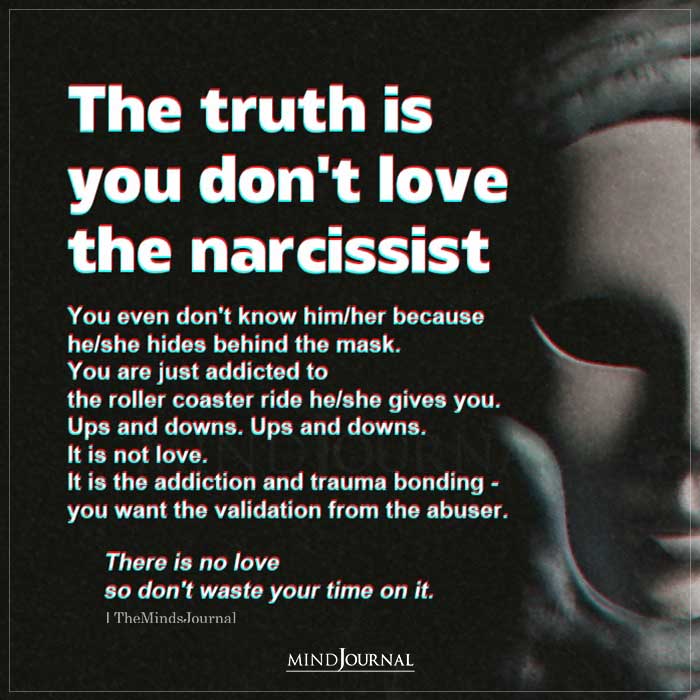
However, if you realize that you have had enough of these stages of a toxic relationship and decide to leave your toxic partner, they will try even more desperately to keep you from leaving them.
They will promise all the things that they never did before and convince you that everything will be better this time around. But they never actually take responsibility for their behaviors and all these lies are meant just to trick you into staying with them.
“Be aware that if you return to the relationship, the things you were promised will vanish, and the relationship will be just as dysfunctional as before, if not more so,” warns author Stephanie Moulton Sarkis, Ph.D., N.C.C., D.C.M.H.S., L.M.H.C.
They will cheat on you repeatedly with their exes while refusing to let you go as you are their narcissistic supply. Being with their ex partner while manipulating you to stay in the relationship is an ego booster for them.
However, a toxic partner will only allow you to walk away or end the relationship when they find a new narcissistic supply – someone who is more submissive, dependant and empathetic than you. “One of the best things you can do with a toxic person is to go no-contact or low-contact with them,” suggests Stephanie.
If you are having trouble walking away from a toxic relationship, make sure to consult a therapist or a mental health professional to better cope with the situation while nurturing your mental and emotional health.
Related: 5 Ways To Survive After Your Boyfriend Cheated
4. Recovery
Walking away and healing from the stages of a toxic relationship can be one of the hardest things you will ever do. Leaving a relationship where you have invested your emotions, time and energy is always hard. It takes away a piece of your heart and soul.
However, relationship abuse can lead to a number of mental health issues like trauma, anxiety and depression. So you are left with no other option but to leave the relationship to protect yourself from incessant toxicity and abuse. This can be especially difficult as you will not get any closure and neither should you expect any.
While you may mourn the end of the relationship, you should realize what you are leaving behind – a relationship full of negativity and toxicity.
Although you may have been manipulated to believe that your toxic ex partner was the best thing to have happened to you, in reality, they were an abusive person who saw you as nothing more than their narcissistic supply.
A person who is toxic in relationships will never be able to love and care about you. It was not your fault that the relationship ended and neither did you deserve all the abuse you received in the relationship.
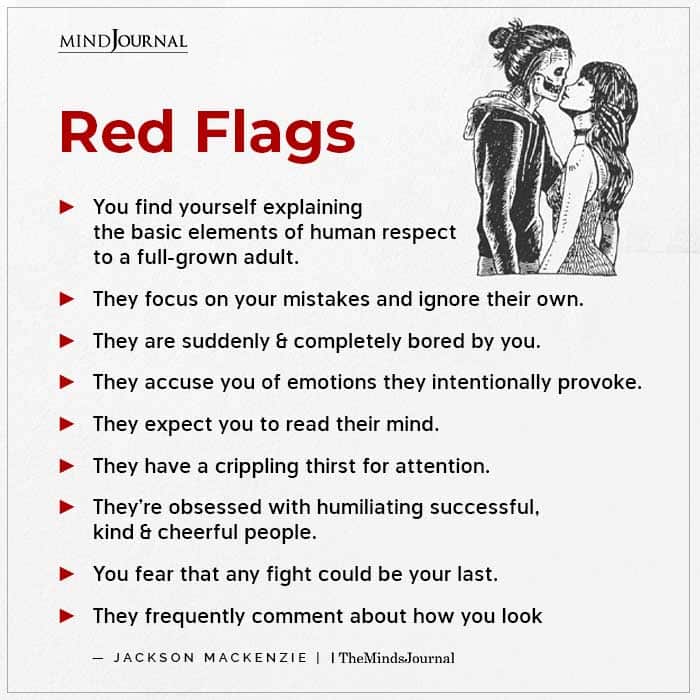
Once you realize this, the recovery and healing process can begin. The moment you learn to let go of all the pain, suffering, unhealthy attachment and codependency is when you will be able to truly detach from the toxic relationship and heal from all the pain you carry in your heart.
However, it will all begin by identifying the signs of an unhealthy relationship. Information is power and detachment from attachment will give you the clarity you need to move forward towards a better future. A future that is free of toxicity and abuse and full of genuine love and warmth.
Related: Why It’s Hard To Let Go Of An Unhealthy Relationship: 11 Reasons
While it is absolutely alright to love the person who took you through the stages of a toxic relationship even after you have left them, it is also necessary to give love to yourself. It is crucial that you practice self-love and self-care as it can empower you to turn back the toxic relationship cycle of abuse and start the cycle of recovery.
Rise above toxicity – Learn the stages of leaving a toxic relationship

Toxic relationships can not only break your heart, it can also break your mind and spirit. Understanding the stages of a toxic relationship can help you identify the signs early on, avoid triggers and help you leave the relationship before it becomes abusive. When you are aware of the patterns of toxicity in relationships, you can choose to step back and walk away from it.
Loving yourself, understanding your needs and caring for yourself is the key to recovery. Letting go of the toxic person will help you gain the power back and build better, healthier and more positive relationships in future.
Related: 6 Stages Of Recovering From A Toxic Relationship
Frequently Asked Questions (FAQs):
Is toxic relationship and unhealthy relationship same?
Toxic relationships can become abusive overtime, but unhealthy relationships can get better and healthier when both partners put in the necessary effort. Toxic relationships are harder to change and can involve abusive behaviors.
What are signs of an unhealthy relationship?
Some of the most common signs of an unhealthy relationship include controlling behavior, insecurity, codependency, dishonesty, avoidance, disrespect, hostility, intimidation, harassment, control etc.
What does a toxic relationship do to a person?
Being in a toxic relationship can have serious mental and emotional effects on the victim. It can adversely affect their confidence, self-esteem and sense of self-worth. It can make them feel worthless, misunderstood, unsupported and attacked and can lead to anxiety and depression.
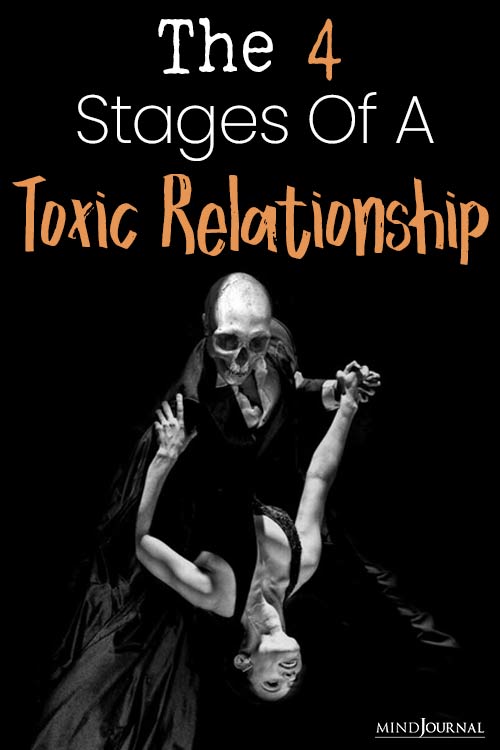

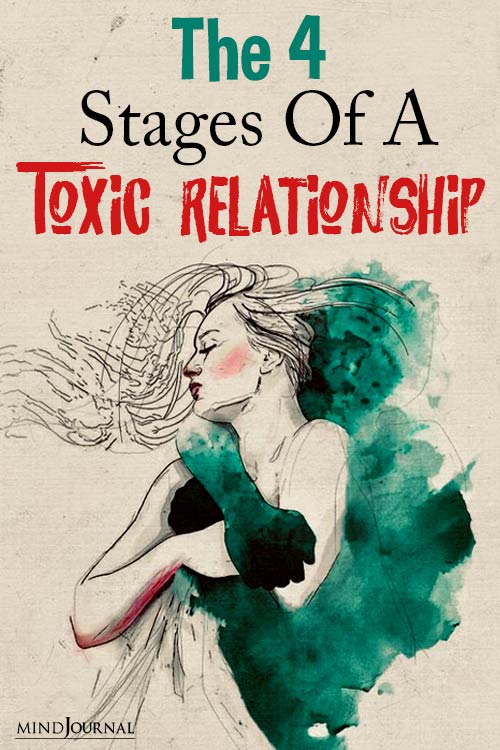


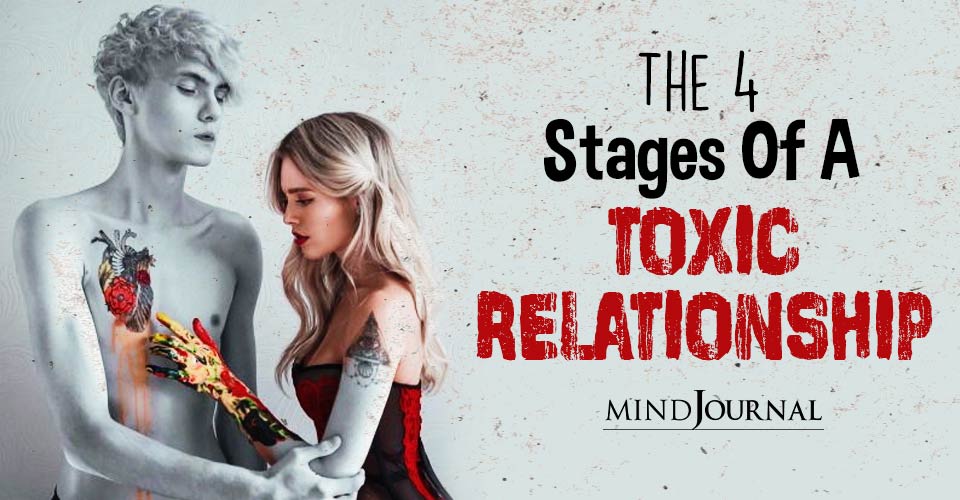







Leave a Reply